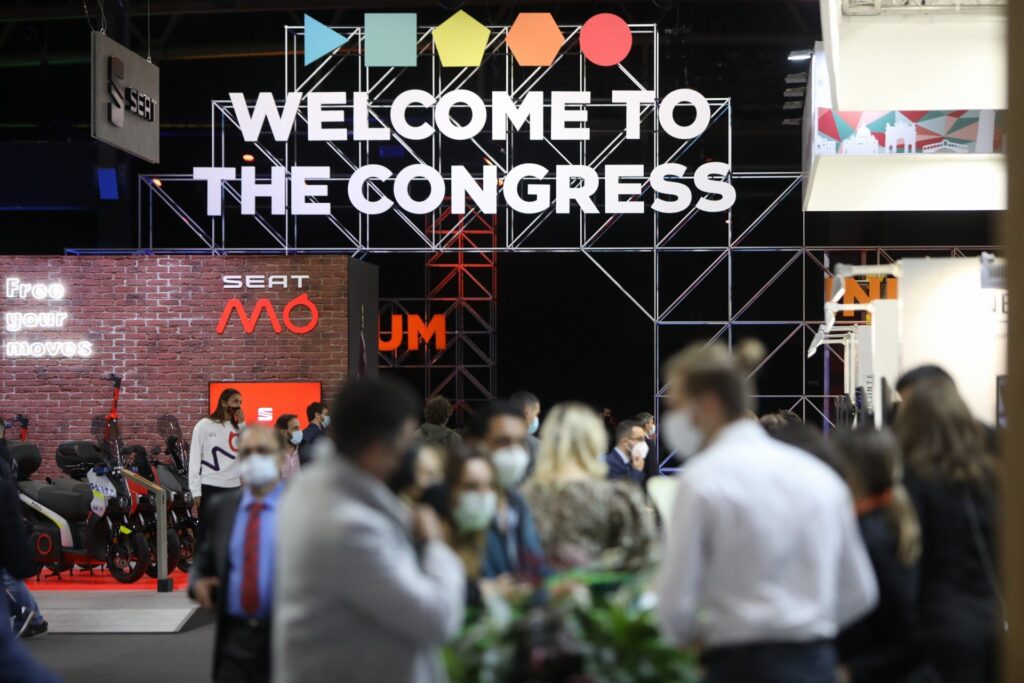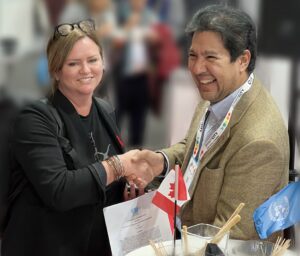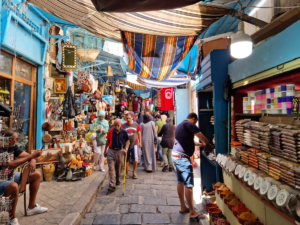UN-Habitat’s Executive Director, Maimunah Mohd Sharif, opened the latest Smart City Expo World Congress #SCEWC21. Her opening words advocated for cities to be at the centre of recovery and for local governments to implement policies and projects that build urban resilience with a holistic approach to crises. Mis Maimunah Mohd Sharif also highlighted the need to build people-centred smart cities:
It is fundamental that we work for digital inclusion, digital rights, and digital capacity. Cities must implement policies that put people at the centre, tackle the sustainable development goals and make governments more open, transparent, and collaborative.
The Smart City Expo World Congress 2021 was a hybrid event that took place in Barcelona from 16 November 2021 to 18 November 2021. Marking the 10th anniversary of the SCEWC, the event brought together city leaders, industry experts and leading organisations to share innovative solutions that help build better, safer, and more inclusive cities. The event was attended by the mayors of Barcelona, Ankara, Medellín, Prague, The Hague, Tunis, and l’Hospitalet de Llobregat, along with representatives of cities from Amsterdam, Berlin, Buenos Aires, Frankfurt, Hesse, Kyiv, London, Madrid, Malaga, Morocco, Paris, Rotterdam, and others.
Under the slogan ‘We are the cities we make’, over 400 exhibitors and 300 speakers came together to inspire conversations around how to use technology to recover better from the impacts of COVID-19. The event served as a platform to foster partnerships that help cities adapt to the needs of both people and planet.
UN-Habitat’s City Resilience Global Programme, based in Barcelona, led the participation of UN-Habitat, introducing topics such as Localizing the Global Agendas and Building Urban Economic Resilience during and after COVID-19. Leading up to the World Urban Forum 11 (WUF11), UN-Habitat created a space to foster conversations around the future of cities.
Miquel Rodriguez Planas, Commissioner of 2030 Agenda at Barcelona City Council, and Maria Galindo, Director-general for Digital Nation and Urban Agenda for the Government of Catalonia shared their metropolitan and regional approaches to tackle the Sustainable Development Goals and the New Urban Agenda. The event, Localizing Global Agendas in Barcelona and the Region of Catalonia, was hosted by Rosa Suriñach i Frígola Partnerships, advocacy and outreach coordinator of UN-Habitat’s City Resilience Global Programme. The dialogue served as a forum for exchanging experiences and lessons learned in supporting subnational governments and highlighted the need for building resilience with a holistic approach, multi-hazard and multistakeholder.
The metropolitan and regional transformation of Barcelona and Catalonia has been driven by policy coherence, alignment, and integration at a local, regional, and national level.
Barcelona defined its metropolitan strategy with a clear role of the city council as the leading actor to implement the 2030 Agenda. With 12 groups across different areas, the local government localized the agenda to the reality and capacity of the metropolitan areas, adapting 82% of the UN 169 Sustainable Development targets and involving the multiple actors of the city.
The government of Catalonia is aligning its region with the national agenda and integrating actions that tackle common challenges. Through multilevel governance, Catalonia is engaging citizens and corporations in its urban agenda. Connectivity, digitalisation, and decarbonisation are the three transversal goals.
Cities worldwide were affected in a similar manner by the pandemic, yet the severity and responses varied from one region to another. Esteban León, Head of City Resilience Global Programme of UN-Habitat, chaired the session ‘Innovation Fuelling the Economic Recovery’, a space where cities shared insights and lessons on how they are using innovation to build economic resilience and recover from the pandemic. Ms Claudia Andrea García, the Director of Planning at the Government of Antioquia, presented the Medellin innovation valley project. Insights from West Africa were shared by the First Deputy Mayor of the City of Bamako, Mali, Ms Fatima Camara. Ms Hila Oren, CEO of The Tel Aviv Foundation, called for ergonomic cities, able to adjust to their residents’ needs supporting their wellbeing. And with ‘innovation’ as the main theme, Mr Jung Hoon Lee, Member of the Smart City Committee at Seoul Metropolitan Government, South Korea shared the city’s experience in using technology and innovation to continue its processes and recovery during COVID-19. Mr Miquel Rodriguez, from Barcelona City Council, highlighted the importance of creating networks with the innovation community to diversify the urban economy.
The panel agreed on the opportunity that the pandemic presents for national and local governments to transition to sustainable, socially just, and resilient urban economies. And concluded by highlighting the valuable role that partnerships and city-to-city cooperation play in overcoming challenges and improving people’s quality of life.
In the Smart City Expo World Congress digital event, Gabriela Uchoa from the city of Teresina presented the City Resilience Profile and Urban Diagnosis Report developed with UN-Habitat’s City Resilience Global Programme as prelude to the local government’s multi-stakeholder roadmap to resilience and sustainability.





